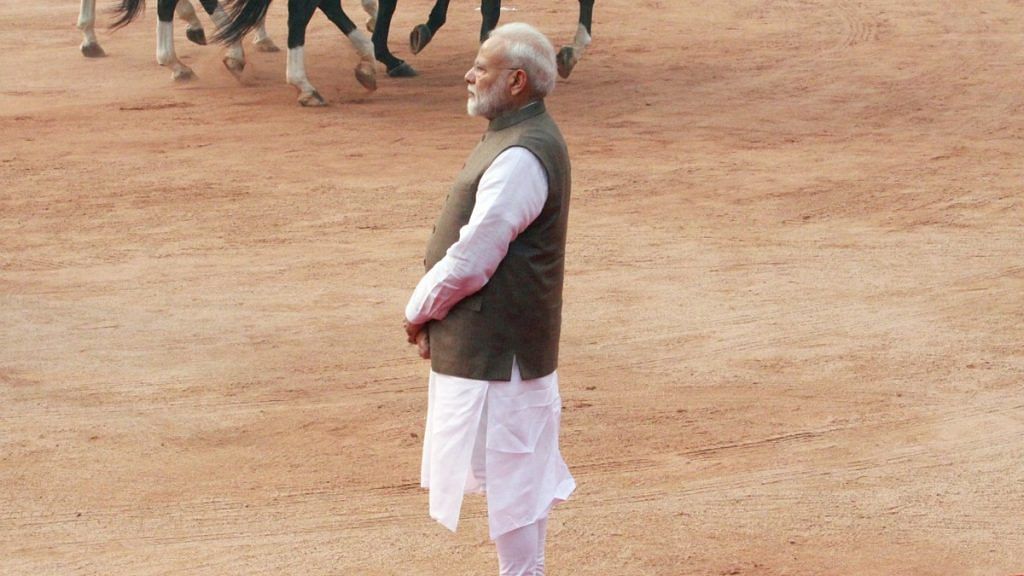For the best part of 2019, despite Pulwama, Balakot and the Kashmir crisis, the idea of the Kartarpur Sahib gurdwara corridor between the two Punjabs stayed alive. Prime Minister Narendra Modi reinforced the end of conversation with Pakistan after the Pulwama attack, diplomats between the two countries faced off several times, including at the UN, on the removal of Article 370, which gave special status to Kashmir. Islamabad even expelled Indian high commissioner Ajay Bisaria.
But the idea of crossing the border to pay obeisance at the shrine of the first Sikh guru, Guru Nanak, could not be denied.
This week, in fact, history is offering not one, but two opportunities for closure, and in both, PM Modi is playing a starring role. After all, Modi understands the power of religious sentiments – whether of Sikhs in Kartarpur or Hindus in Ayodhya.
The first opportunity is a small step in healing the distance between the two Punjabs, via the journey to Kartarpur Sahib.
The second is the Supreme Court verdict on the Ram Janmabhoomi-Babri Masjid title dispute on the other side of the Gangetic Plains – the PM has already cautioned people to accept the verdict in all humility and advised his council of ministers not to make unnecessary comments that could hurt peace.
Also read: Pakistan sends feelers, wants to restore diplomatic ties with India after Kartarpur event
Kartarpur Sahib corridor
On Kartarpur Sahib, Modi has sensed the strength of the Sikh sentiment. In Bangkok last week, where he spoke to the Indian-Thai community (of which a large number are Namdhari Sikhs) on the margins of the ASEAN summit, the PM invited them to come to India and travel across the Kartarpur corridor.
Perhaps, despite his misgivings, Modi has little option but to own the project. Some of this is political – Punjab is run by that rare political being, a Congress chief minister, and Modi realises that his support of the Sikhs in this deeply emotional moment may endow the BJP and its ally, the Akali Dal, with some goodwill, which could even translate into votes.
Certainly, the Kartarpur Sahib corridor is much more than short-term politics. Modi realises this is truly a historic moment. This is the first time since Partition of India in 1947 that the border between the two Punjabs, apart from the crossing at Wagah-Attari, is being breached in peacetime.
So, the PM will now travel Saturday to Sultanpur Lodhi in Punjab, where the historic Ber Sahib Gurudwara is located, on his way to Dera Baba Nanak, the last village near the India-Pakistan border. Here, a passenger terminal has been built to facilitate pilgrims, which he will inaugurate.
The Kartarpur Sahib gurdwara lies about 4 km away on the other side, across the Ravi. On a good day, you can hear the ‘gurbani’ as dusk falls, and the breeze from west to east carries the sound across.
Modi won’t cross the border, unlike his predecessor in the BJP, Atal Bihari Vajpayee, did 20 years ago, in 1999, when he went to Lahore and laid the foundation stone of good neighbourliness. It is certainly too soon for Modi to accept reconciliation with Pakistan’s “hybrid” government, where the real power lies with the Army and prime minister Imran Khan is more or less a ‘mukhauta’, a mask.
But by giving in to a truly Punjab-Punjab moment, Modi is, albeit reluctantly, accepting that there are some things even he can’t deny. Punjab’s recent history has been written in blood, with lakhs suffering from the most brutal killing and violence imaginable, and another 1.5 crore forcibly uprooted from their homes on both sides.
Also read: How Kartarpur Corridor talks went on despite India-Pakistan tension, diplomatic roadblocks
Ayodhya verdict
As for Ayodhya, Modi realises he cannot allow history to repeat itself when the verdict in the Ramjanmabhoomi-Babri Masjid title dispute is delivered in less than a week from now. He knows that RSS affiliates like the Vishwa Hindu Parishad were banned for its role in the destruction of the masjid in 1992, and that top BJP leaders such as L.K. Advani, Murli Manohar Joshi and Uma Bharati were charged with criminal conspiracy by a special CBI court.
As Prime Minister, Modi’s reputation as a global leader is at stake. The wave of communal rioting that followed in 1992-93, with riots spreading to Mumbai, Delhi, Kanpur, Surat among others, and in which nearly 2,000 people are estimated to have been killed, simply cannot be allowed again.
That’s why RSS leaders are reaching out to Muslim organisations as well as civil society. Flag marches are taking place in Ayodhya and several other sensitive spots. If India emerges unscathed, Modi’s reputation will be consolidated.
From Kartarpur Sahib to Ayodhya, this is certainly an important week for the PM.
